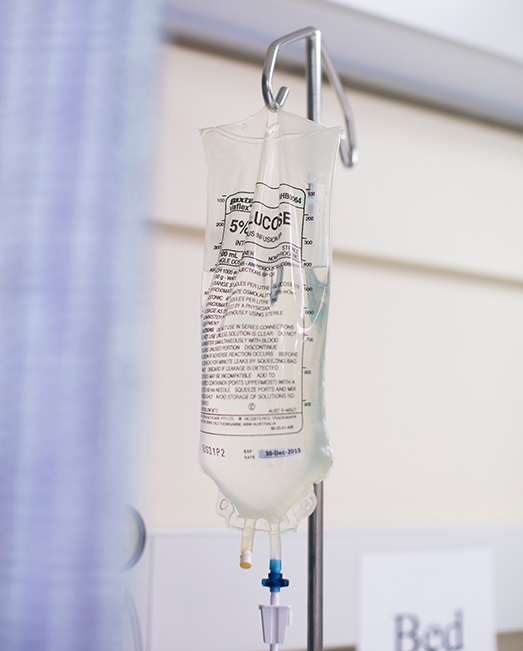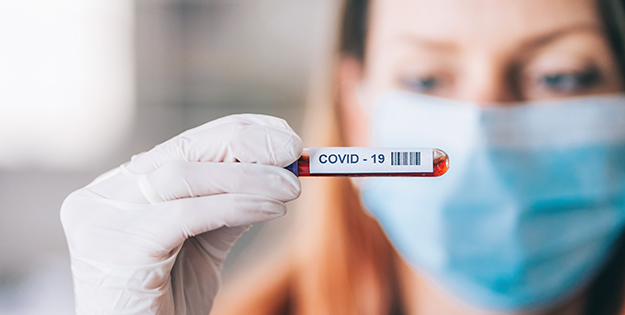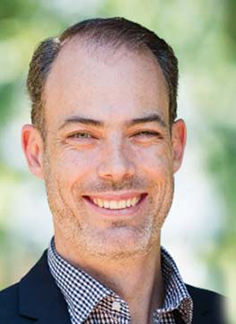Community
Copyright@ Australian Catholic University 1998-2026 | ABN 15 050 192 660 CRICOS registered provider: 00004G | PRV12008
Copyright@ Australian Catholic University 1998-2026 | ABN 15 050 192 660 CRICOS registered provider: 00004G | PRV12008

You’re a doctor or a nurse at a busy intensive care unit, where three coronavirus patients — a hale and hearty teenager, a single mother with diabetes, and an otherwise healthy grandfather — are in need of lifesaving treatment. You’re stretched for resources and can only offer one of them proper care. Who gets priority?
As is often the case with such ethical dilemmas, the answer is more complicated than it seems. But making these decisions should be no steep learning curve for frontline medical staff.
“These are not new questions either in theory or in practice,” says Dr David Kirchhoffer, director of ACU’s Queensland Bioethics Centre.
After all, healthcare rationing is something doctors and nurses deal with all the time. Take, for example, a busy emergency room on a Saturday night, where the well-worn triage system helps a registered nurse to assess patients and determine their need for treatment relative to others.
Hospitals also have guidelines for dealing with catastrophes and crises, where they experience a surge in patients, and doctors might be faced with the decision of treating one person over another.
“Resource allocation has certainly come to the fore with the crisis issues that COVID-19 presents, but it has always been there in practice as well as in theory, and these types of questions arise all the time in hospitals,” Dr Kirchhoffer says.
“Our procedures might shift in gear and our areas of focus might change, but the same principles of resource allocation still sit in the background. They haven’t gone anywhere.”
The pandemic has certainly shone a spotlight on the importance of hospital bioethics.
Commentators have argued that the response of some countries has lacked the expertise offered by ethicists, who are “qualified to speak specifically to the moral and ethical issues raised by the pandemic … dealing with shortages and the treatment of the elderly”.
These moral and ethical issues came into stark focus in Italy, where the vast majority of deaths from the illness have been in patients over 70.
As the crisis reached its peak, the Italian College of Anesthesia, Analgesia, Resuscitation and Intensive Care (SIAARTI) published guidelines for doctors and nurses, settling on procedures that “guarantee that those patients with the highest chance of therapeutic success will retain access to intensive care”.
This is standard medical practice, says Dr Kirchhoffer, and if the situation in Australia ever reached the level it did in Italy, frontline medical staff would be following similar protocols.
“When it comes to resources, if you had two people who would both get benefit therapeutically from being on a ventilator, then you want to give it to the person who’s most likely to benefit,” he says. “But that’s where the decision-making starts to get quite tricky and complicated.”
Healthcare workers are forced to weigh up several factors, including the patient’s overall health, their likelihood of recovery, and the potential burden of aggressive treatment.
As a doctor at the Cremona hospital — a virus hotspot in northern Italy — told the ABC, the choices faced by frontline nurses and doctors were “a massive responsibility”.
“You might have a patient who is 80 years old and has a ton of other problems — he’s had a stroke, or Alzheimer’s, or other pathologies. And then there’s a younger patient. In that case, it’s an easy choice,” Dr Guglielmo Gianotti told Foreign Correspondent.
“Then you’ve got patients who might be 80 or 90 years old but they’re in fine health. That choice becomes much harder. You don’t know how you should react in that circumstance. It’s not just the age that makes the difference.”
The ethics of aged-based healthcare rationing was a major topic of discussion in Italy because of one sentence in SIAARTI’s guidelines: if the crisis continued to escalate, it advised it “may become necessary to establish an age limit for access to intensive care”.
For his part, Dr Kirchhoffer cautions against making critical care decisions based on the age of the patient.
“You could have a scenario where you have two people with exactly the same health and prognostics, and the same kind of therapeutic benefit from treatment, but one happens to be older than the other, and in that case age may be used,” he says.

“But in reality that’s an extremely unlikely scenario, and I remain unconvinced that you ever really need to use age.”
What happens if the age limit is set at 70, and you’re then forced to choose between a healthy 71-year-old and a chronically ill 69-year-old?
“If you only had one ventilator and were forced to make a choice between those two people, it’s highly likely that the medically-justified decision would be to give it to the older person, not the younger person,” he says. “That’s why enforcing a blanket rule on age makes no sense.”
But doesn’t this make the decision trickier for the clinical team on the frontline of a crisis? Should they be the ones to wear the moral burden of deciding who lives and dies?
“The answer is yes, it does make the decision harder, and yes, medical staff are the ones who should make that decision, even though it’s true they may not always get it right,” says Dr Kirchhoffer, whose research focuses on the role of human dignity in bioethical issues.
“We should ensure that clinicians are the ones making clinical decisions, not bureaucrats, because clinicians are in the best position to use the information in front of them to make a medical prognosis based on sound reasoning.
“Age on its own will never provide enough information to make that prognosis. If you simply choose a cut-off and make decisions on that basis, you’re not doing medicine anymore, and I think it’s crucial that we preserve the role of medicine.”
Another danger of using age as a determinant for healthcare rationing is that it risks changing the way we think about certain groups in our society, and the rights they have.
As Australia’s coronavirus case rate continued its southward slide, there was already evidence that this was starting to happen, with a flurry of argument over whether the elderly — who are at a greater threat of harm from COVID-19 — should wear more of the cost of the virus lockdown.
Dr Kirchhoffer’s counter argument is that no Australian — young or old, sick or healthy — should be stripped of their human dignity, because this contradicts the values of our society.
“If we suddenly decide to exclude a whole group of people just because of their age, we risk losing sight of each other as humans.”
Asking ourselves these deep moral and ethical questions is important, he adds, because “we have to be able to live with ourselves at the end of this”.
“We provide equal attention and appropriate medical care to all because we believe that all human beings have equal dignity, and there is no age at which one ceases to possess this dignity, so we have to be very careful,” Dr Kirchhoffer says.
“When this is all gone, we don’t want to have a scenario where we look back and ask ourselves, ‘How did we end up in a society that decides a whole class of people weren’t deserving of our proper care and attention? How did we become so evil?’
“As a society, we should be mindful enough to ensure we’re able to say that even though a lot of people died in this pandemic, we did the best we could under the circumstances, and we’re okay with that.”
Dr David Kirchhoffer is director of the Queensland Bioethics Centre, a collaboration between the Archdiocese of Brisbane and the Faculty of Theology and Philosophy at ACU. His research focuses on human dignity in contemporary ethics and its application to bioethical issues, and the limitations of respect for autonomy in human research ethics.

Are you passionate about health or ethics? Explore the courses offered at ACU.
Copyright@ Australian Catholic University 1998-2026 | ABN 15 050 192 660 CRICOS registered provider: 00004G | PRV12008